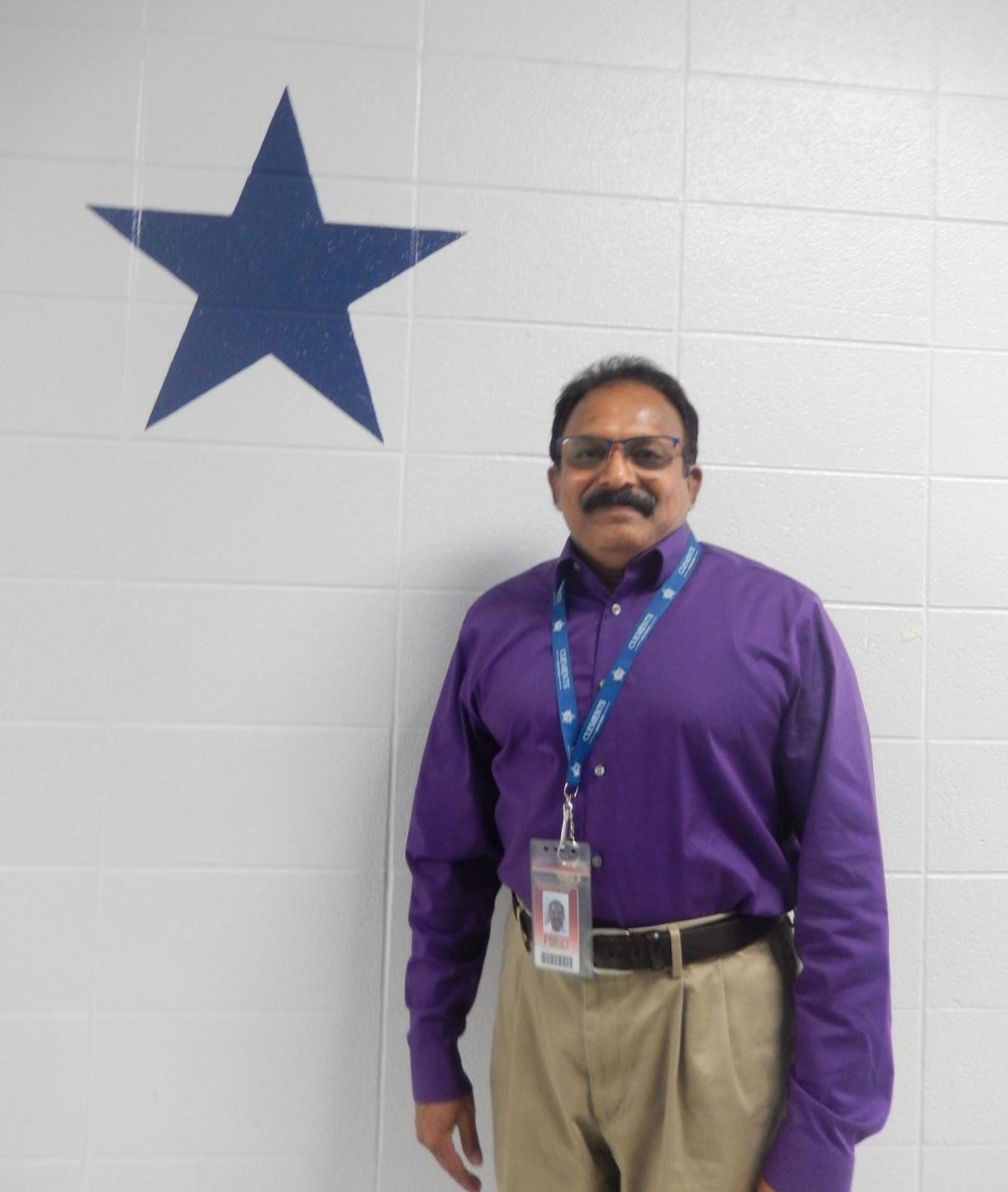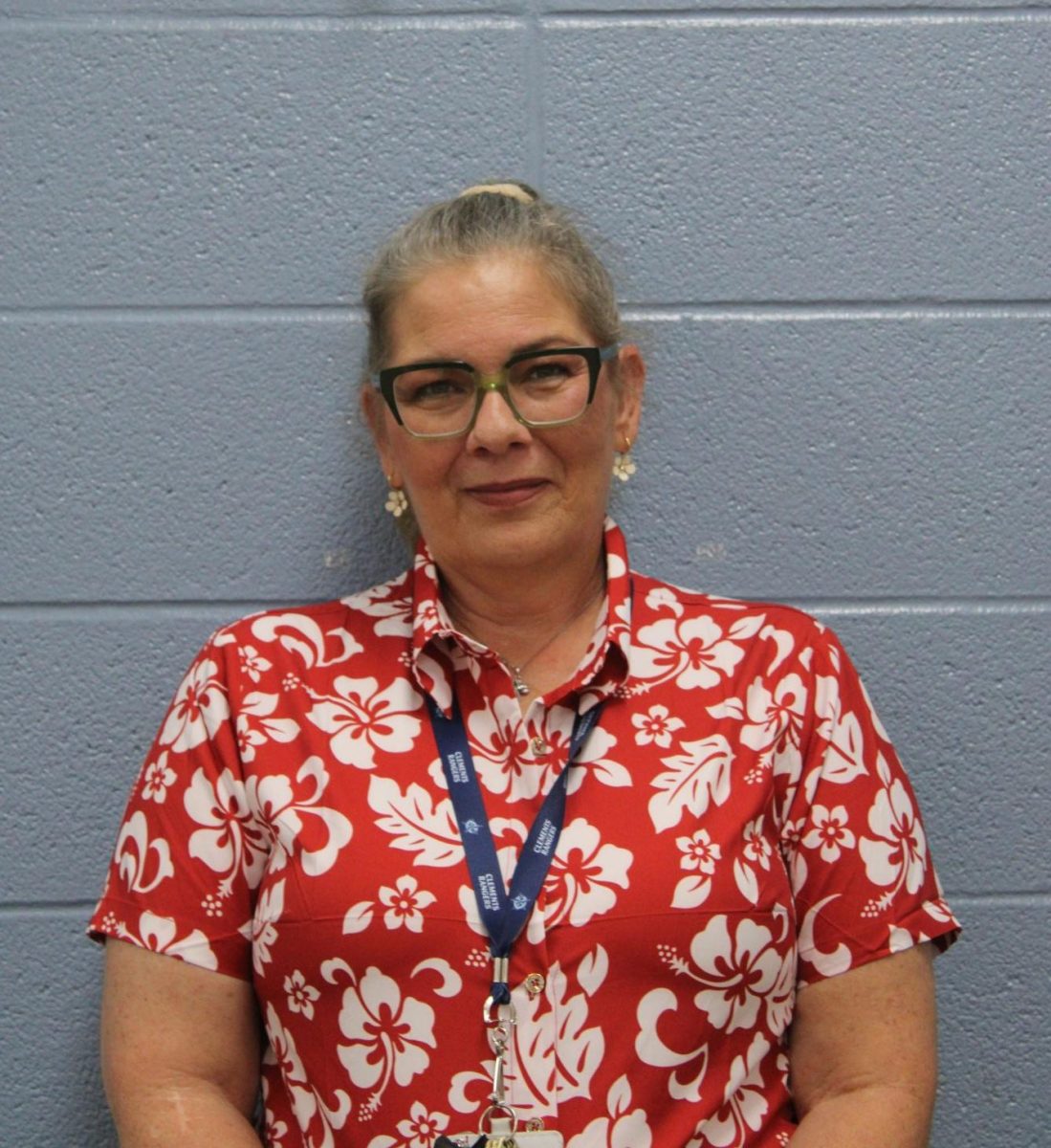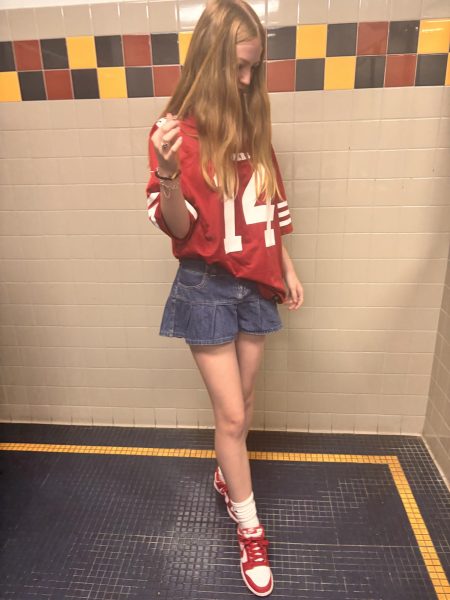With five years of experience as an ISS Monitor, Raveendranathan Venugopal, known as “Mr. V” to students and teachers, plays an important role in maintaining structure and support at Clements High School. Dedicated to helping students turn challenges into opportunities, he sees ISS not as punishment, but as a chance for reflection, growth, and success.
Harper Kersh: What’s your name and what do you do?
Raveendrathan Venugopal: My name is Raveendranathan Venugopal, it’s a long name. My friends and family call me Venu and students and teachers call me Mr. V. I take care of ISS students at Clements.
HK: How long have you been ISS Monitor?
RV: I have been working in this position for the last five years.
HK: Why did you choose to be ISS Monitor?
RV: I chose to be an ISS Monitor because I want to make a positive impact on students who might be going through a tough time or struggling with behavior. I believe every student deserves a second chance. ISS isn’t just about discipline, it’s an opportunity for me to help them reflect on their choices, and guide them toward better decisions. Also, it is rewarding to be a part of the team creating a safer and more respectful school atmosphere.
HK: What does a typical day as the ISS monitor look like for you?
RV: Basically, monitor student behavior to ensure they follow the rules, you can see the rules on the boards, and record their attendance, collaborate with teachers to get the assignments, quizzes and tests for the students and ensure that they complete them in a timely manner, communicate with teachers about their progress and problems if needed, ensure FORR students complete the substance abuse education course on time in schoology and report on progress to the AP’s. I also report any issues or concerns to AP’s. I want to mention that I get tremendous support from AP’s that I really appreciate.
HK: What’s the most challenging part of your job?
RV: The most challenging part of my job is to manage a wide range of student behavior in a way that keeps the classroom calm and productive. It takes a lot of patience to do that. Another challenge is balancing discipline with support as I need to enforce the rules consistently but also helps students reflect and improve rather than feel punished.
HK: What’s the most rewarding part of working with students in ISS?
RV: I feel so happy when students use the ISS time wisely to complete their pending assignments and when they tell me that they accomplished a lot during ISS because all they do in ISS is study, study, study.
HK: How do you keep students motivated when they’re in ISS?
RV: I keep the students motivated by setting clear expectations and keeping it structured routinely. I give positive feedback and recognize their effort. Also, I keep the classroom setting calm and peaceful always.
HK: What advice would you give students to avoid ending up in ISS?
RV: First and foremost, I advise students to always follow the school rules. I would tell them to think before they act, consider the consequences before making choices, especially when they are upset or frustrated. I tell them to communicate with teachers or APs instead of acting out.
HK: Do you see ISS as more of a punishment, or a chance for students to reset and learn?
RV: Many of the students who came to ISS have acknowledged that they were able to refocus and complete work without distraction in the ISS classroom, which tells me it’s not a punishment but a chance for them to reset and learn. The goal is to help students reflect on what happened, understand how their choices affect them and others, and come up with better ways to handle similar situations in the future. ISS gives students a break from the work and break from the environment that they may have triggered their behavior, and it provides a structured space where they can cool down and stay focused on work. I believe ISS can be a turning point and a learning opportunity.
HK: How do you handle it when students come in with a bad attitude?
RV: I stay calm and professional and set expectations clearly, address attitudes softly but directly, and provide a reset option. I also remind them about the consequences, that is additional ISS and a contacting admin if needed.
HK: What’s one positive change you’ve noticed in students after being in ISS?
RV: Students return to class more mindful of their actions, more respectful of rules, and more aware of the impact their choices have on their future.
HK: What made you want to work at CHS?
RV: I was really impressed when the administration explained the positive, inclusive school culture at CHS during my interview. Our school prioritizes student character, community involvement, and social-emotional growth. I wanted to be a part of a team that has a strong commitment to student success, both academically and personally.
HK: If you weren’t an ISS monitor, what job would you want at the school?
RV: If I weren’t an ISS monitor, I would want a role where I could still work closely with students and support their growth. Any position where I can continue to guide, support and encourage the students to get back on track would be fulfilling.





